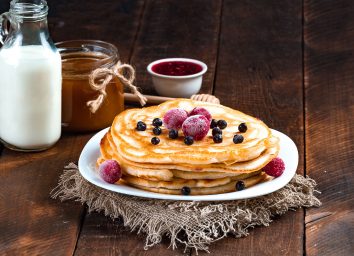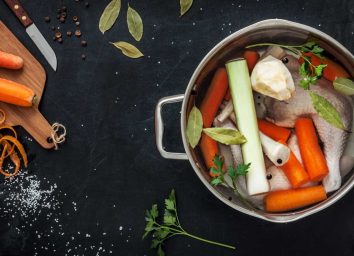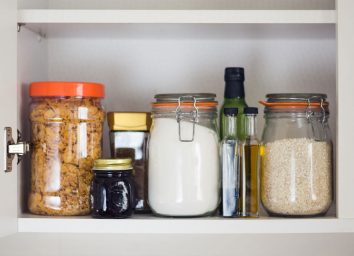10 Nutrition Myths—Busted!
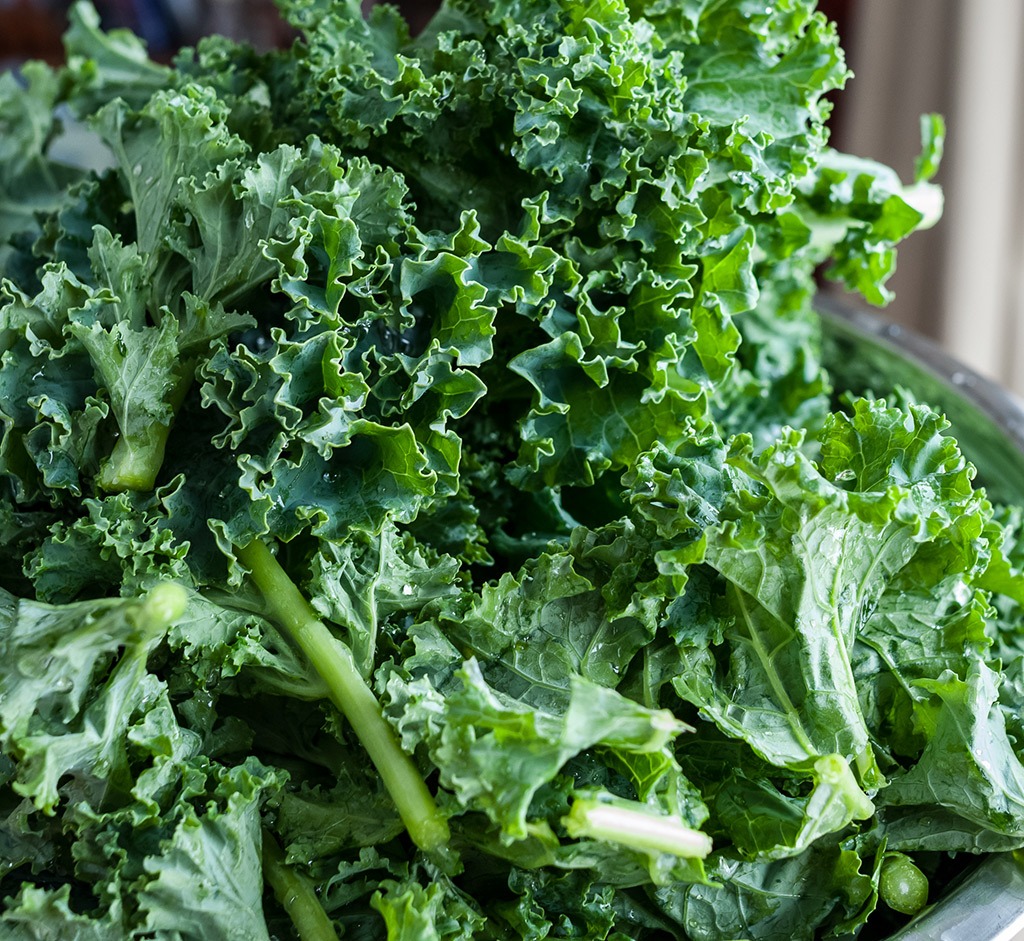
I was sorry to hear about his dilemma. What was driving him to financial ruin? What sort of nettlesome money-sapping addiction had my friend in its grasp?
“Trying to eat healthy,” he explained. “For example, every Saturday I go to the farmers’ market and shell out $24 a pound—for kale! It’s costing me a fortune. But if you want to eat right, you gotta shell out for the good stuff, no?”
I shook my head. At Eat This, Not That!, we spend a lot of time unmasking health imposters. And the truth is, the superpowers of kale, like the dangers of the Bermuda Triangle, have been highly exaggerated. Sure, it’s good for you, but the ranking of kale as our greatest green is just one of many word-of-mouth myths that drive our nutritional decision-making, often in the wrong direction. Much of what we believe about food is really just hearsay, a game of nutritional telephone handed down from science journals to newspapers to television to your Aunt Phoebe to your mom and then to you, with marketers in between.
Well, we had the research team at Eat This, Not That! track down the truth. Learn how to separate fact from fiction and you might finally shed the habits that are silently sabotaging your weight loss efforts. But I must warn you: The truth can hurt.
Kale is Our Healthiest Green
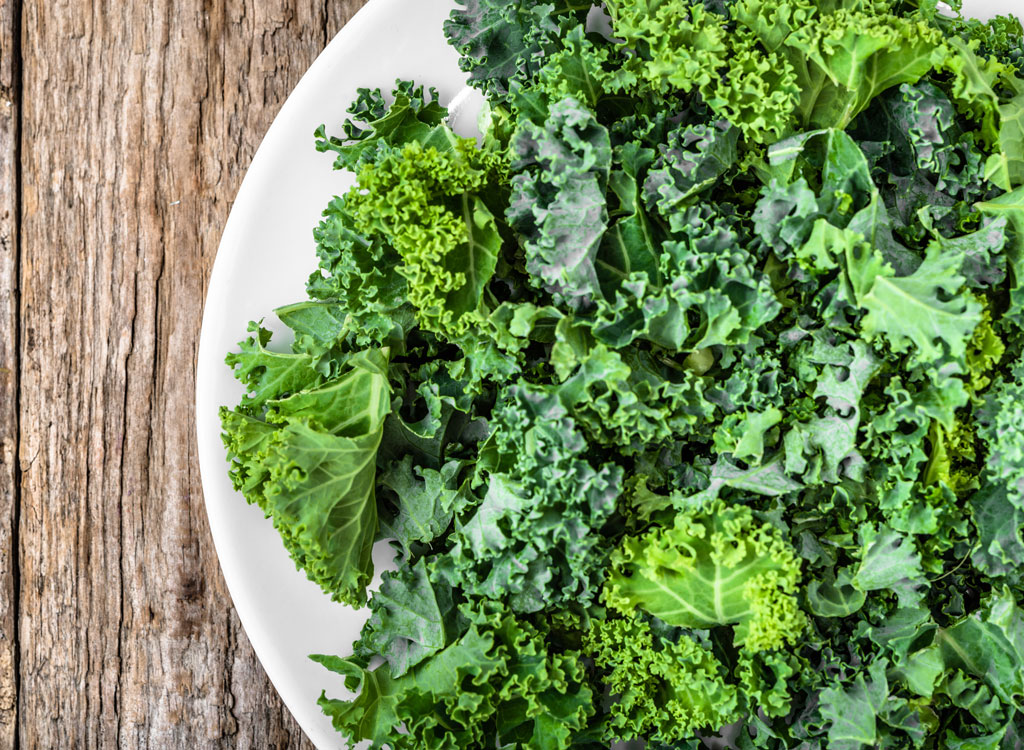
A 2014 study at William Paterson University ranked fruits and vegetables by their nutrient density, based on their levels of 17 different nutrients that have been linked to improved cardiovascular health. Not surprisingly, the top 16 were all leafy greens, which pack the most nutrition per calorie. (Coming in at #17 was red bell peppers.) But kale didn’t even make the top 10. In fact, simple spinach and even Romaine lettuce beat the alleged supergreen, as did parsley and chives. Even stuff you normally throw away–the greens atop beets–pack more nutrition. (Here’s a list of the top ten greens healthier than kale, so you can mix up your salad rut.)
High Fructose Corn Syrup is Worse Than Table Sugar
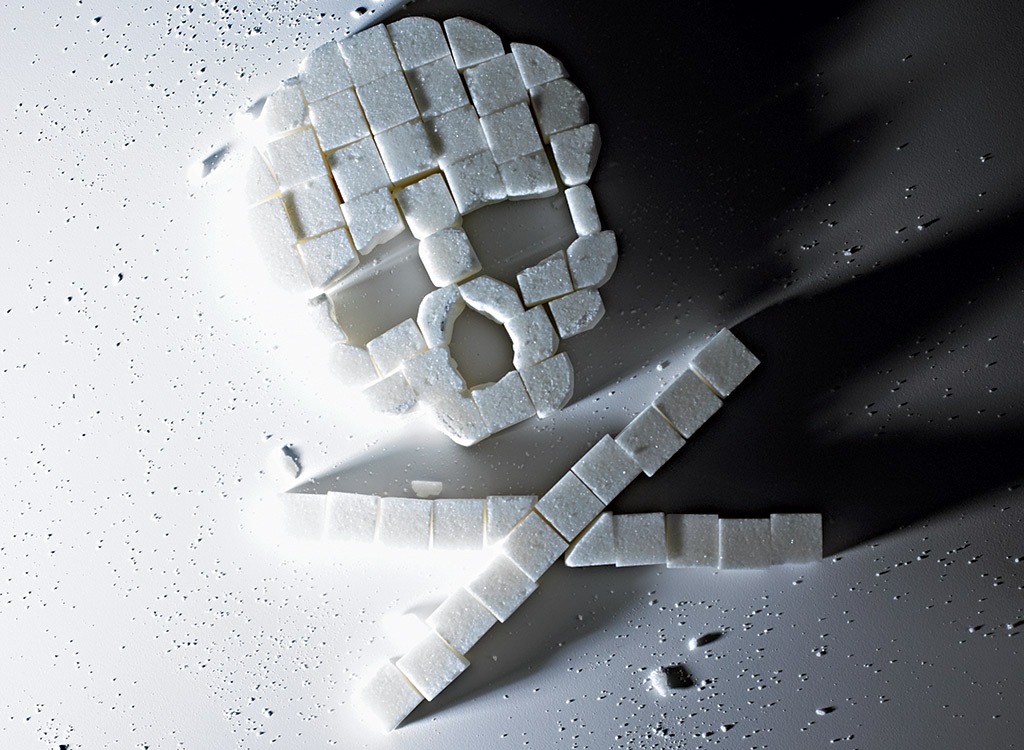
Sugar is the master of disguise. Maltodextrin, brown rice syrup, dextrose, sucrose—it’s got more alter egos than the Avengers. But it’s most well-known costume is High Fructose Corn Syrup. Whether HFCS is worse than plain ol’ table sugar has long been a contentious issue. Here’s what you need to know: In a 2014 review of five studies comparing the effects of sugar and HFCS, there was no difference found in changes in blood glucose levels, lipid levels, or appetite between table sugar consumption and HFCS consumption. In other words, your body can’t tell one from the other—they’re both just sugar. HFCS’s real sin is that it’s super cheap, and as a result, it’s added to everything from cereal to ketchup to salad dressing. Is it a good idea to minimize the HFCS in your diet? Absolutely. It’s best to cut out all unnecessary sugars. But HFCS’s role as nutritional enemy #1 has been exaggerated. Now that you know, find out how to avoid consuming so much sugar with these 30 Easy Ways to Stop Eating So Much Sugar!
Sea Salt is a Healthier Version of Regular Salt
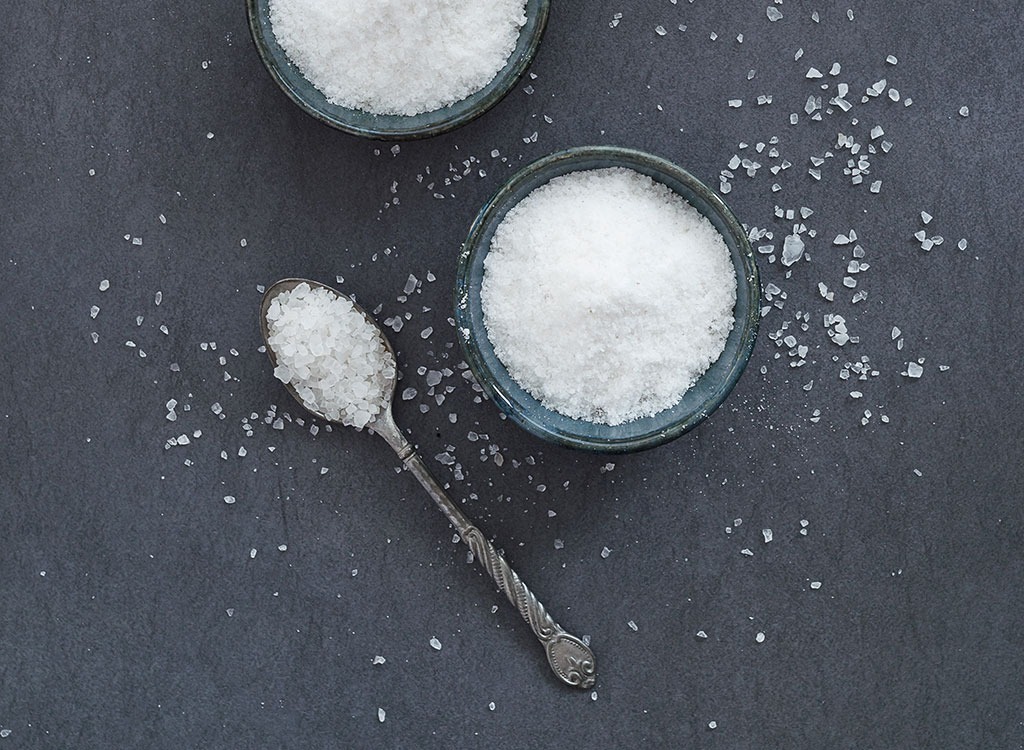
Everyday table salt comes from a mine and contains roughly 2,300 milligrams of sodium per teaspoon. Sea salt comes from evaporated seawater, and it also contains roughly 2,300 milligrams of sodium. That makes them, well, roughly identical. Advocates point to the fact that sea salt also contains other compounds like magnesium and iron, but in truth, these minerals exist in trace amounts. To obtain a meaningful dose, you’d have to take in extremely high and potentially dangerous levels of sodium. What’s more, traditional table salt is regularly fortified with iodine, which plays an important role in regulating the hormones in your body. Sea salt, on the other hand, gives you virtually zero iodine. The bottom line is this: If switching from table salt to sea salt causes you to consume even one extra granule, then you’ve just completely snuffed out whatever elusive health boon you hope to receive. Plus you’ve wasted a few bucks. P.S. — Salt is a major culprit in the 35 Things That Make You Bloat!
Energy Drinks Are Less Harmful Than Soda
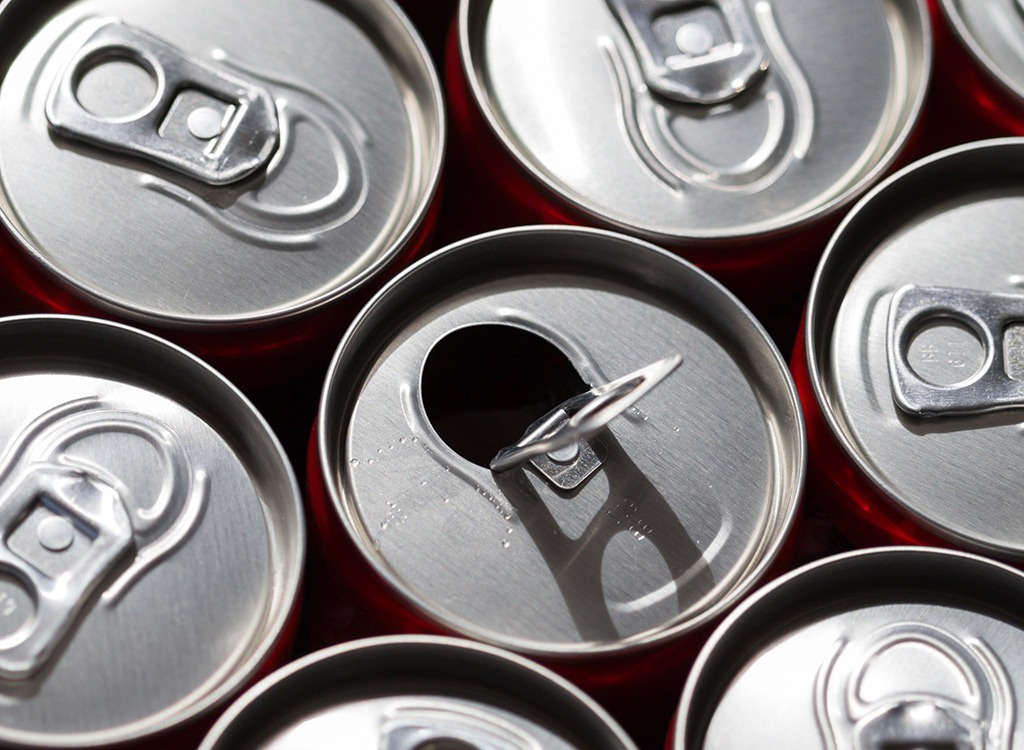
Energy drinks like Red Bull, Monster, and Full Throttle attempt to boost your energy with a cache of B vitamins, herbal extracts, and amino acids. But what your body’s going to remember most (especially around your waistline) is the sugar in these concoctions; a 16-ounce can delivers as much as 280 calories of pure sugar, which is about 80 calories more than you’d find in a 16-ounce cup of Pepsi. What’s more, a University of Maryland study found energy drinks to be 11 percent more corrosive to your teeth than regular soda. So here’s the secret that energy drink companies don’t want you to know: The only proven, significant energy boost comes from caffeine. If you want an energy boost, save yourself the sugar spike and drink a cup of coffee. (A cup of black joe: 5 calories. Make this swap once a day and lose nearly 29 pounds this year!
Diet Sodas Help Keep You Slim
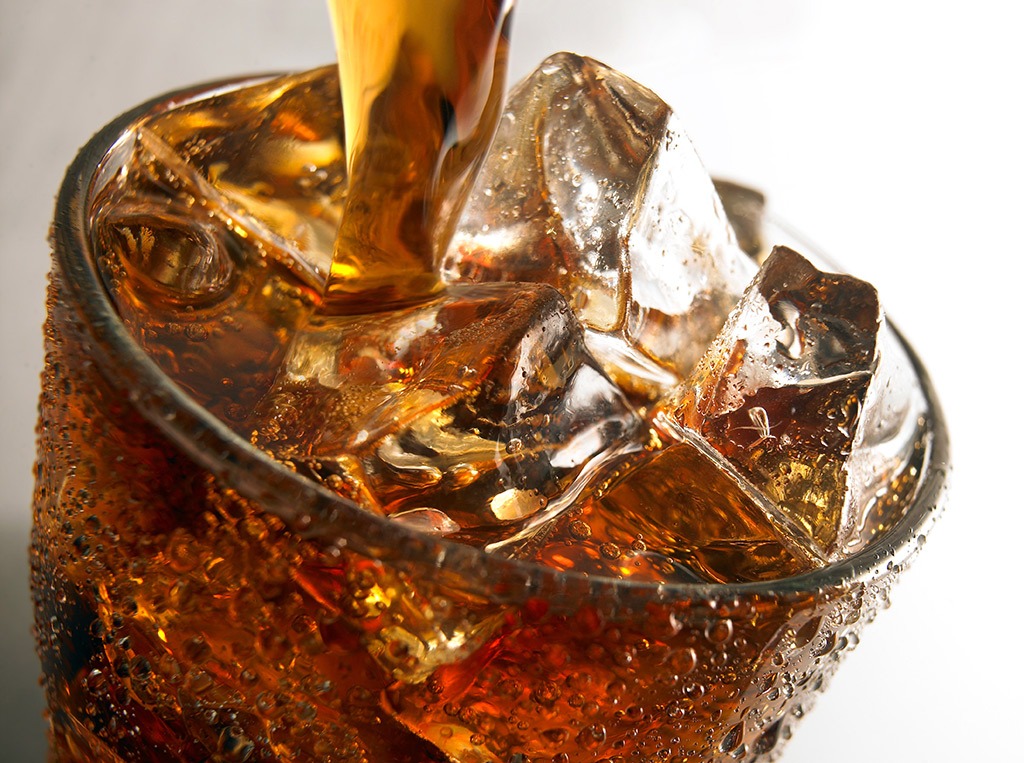
The obesity-research community is becoming increasingly aware that the artificial sweeteners used in diet soda—aspartame and sucralose, for instance—lead to hard-to-control food urges later in the day. One Purdue study discovered that rats took in more calories if they’d been fed artificial sweeteners before mealtime, and a University of Texas study found that people who consume just three diet sodas per week were more than 40 percent more likely to be obese. Try weaning yourself off by switching to carbonated water and flavoring with lemon, cucumber, and fresh herbs.
A study in the American Journal of Public Health found that more obese adults drink diet soda than healthy-weight adults and that, among the overweight and obese adults studied, those who drank diet soda ate more calories than those who consumed sweetened/regular soda. Researchers have also linked regular diet soda consumption with decreased response to artificial sweeteners and a decreased link between sweet tastes and energy value, meaning their bodies may grow to disassociate sweetness with satiety cues, making it easier to overeat and, therefore, gain weight.For more, read these essential 5 Reasons to Finally Give Up Soda.
Going Paleo is Better for You

Paleo is one of the most-Googled diets in recent years. Bacon and steak for weight loss? Yes, please! But the Paleo diet is indeed too good to be true. Although protein-rich diets help pounds fly off initially, eating a low-carb, high-protein diet can actually cause weight gain in the long-term, say Spanish researchers. In fact, their study findings revealed that those who follow high-protein diets have a 90 percent greater risk of gaining more than 10 percent of their body weight over time than those who don’t go heavy on the meat. To reap the weight-loss benefits of the Paleo diet plan–without paying for it later–nix the processed junk and oils as the diet suggests, but keep the protein in check. Men should get no more than 56 grams a day and women should aim for 46 grams. Take in more than the recommended amount and the excess will likely be stored as health-harming fat.
All Calories Are Created Equally
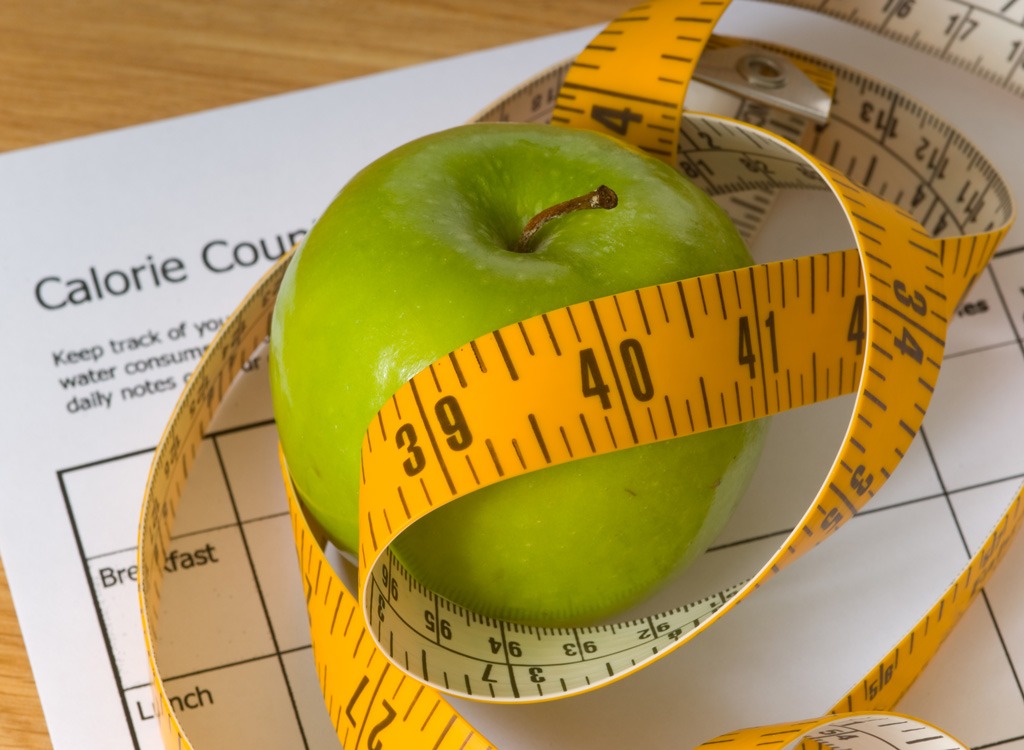
Eating 300 calories of chicken is not the same as eating 300 calories of cake. The body uses and stores calories differently depending on the nutrients each food is comprised of. Corn and beans, for example, contain something called resistant starch, a type of carb that is really hard to digest. In turn, the body isn’t able to absorb as many of the calories or as much of the glucose—a nutrient that’s stored as fat if it’s not burned off. It’s a similar story with lean-protein sources like turkey, chicken and fish. In addition to boosting satiety, protein also has a high thermogenic effect compared to fats and carbs. In turn, your body burns off a fair percentage the meat’s calories during the digesting process and post-meal calorie burn spikes by as much as 35 percent! Your favorite cookies can’t make that same claim. In fact, since the majority of sweet treats’ calories come from sugar, getting too many of your calories from desserts can leave you hungry, fat and–you guessed it–frustrated.
Foods Labeled “natural” Are Healthier
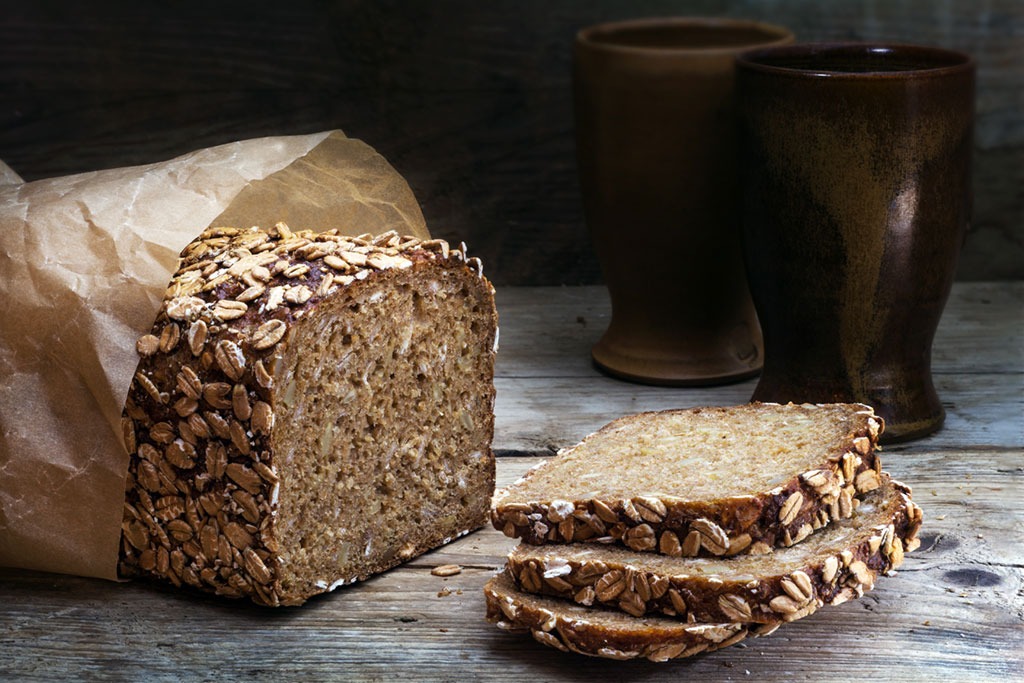
The FDA makes no serious effort to control the use of the word “natural” on nutrition labels. Case in point: 7UP boasts that it’s made with “100% Natural Flavors” when, in fact, the soda is sweetened with a decidedly unnatural dose of high fructose corn syrup. “Corn” is natural, but “high fructose corn syrup” is produced using a centrifuge and a series of chemical reactions. Other “natural” abusers include Natural Cheetos, which are made with maltodextrin and disodium phosphate, and “natural advantage” Post Raisin Bran, which bathes its raisins in both sugar and corn syrup. The worst part is, you’re likely paying a premium price for common junk food
Yogurt is Good for the Bacteria in Your Belly
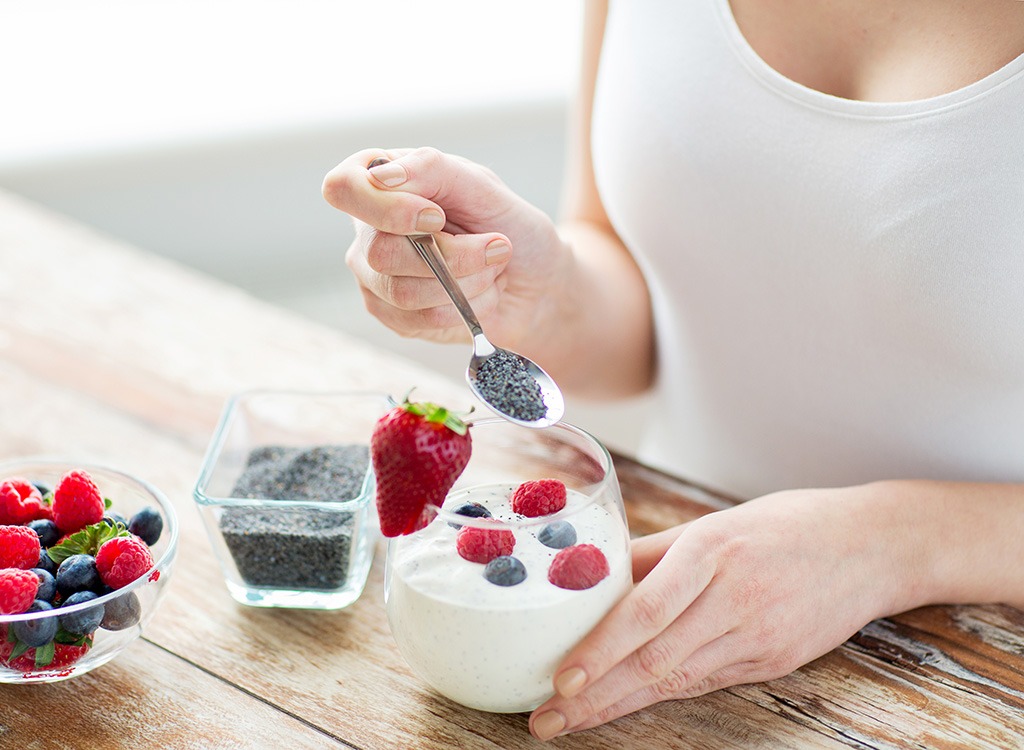
Sure, some yogurts contain beneficial bacteria that can send reinforcements to your gut when you need them. Lactobacillus acidophilus is the bacteria you want to look for, with yogurts that say “live active cultures.” But most yogurts are so high in sugar that they do more to promote unhealthy gut bacteria than anything else. (Unhealthy bacteria feed on sugar in your belly the same way they do around your teeth.) No need to read every label at the store; we did the legwork to track down the Best Brand-Name Yogurts for Weight-Loss!
Egg Yolks Raise Your Cholesterol
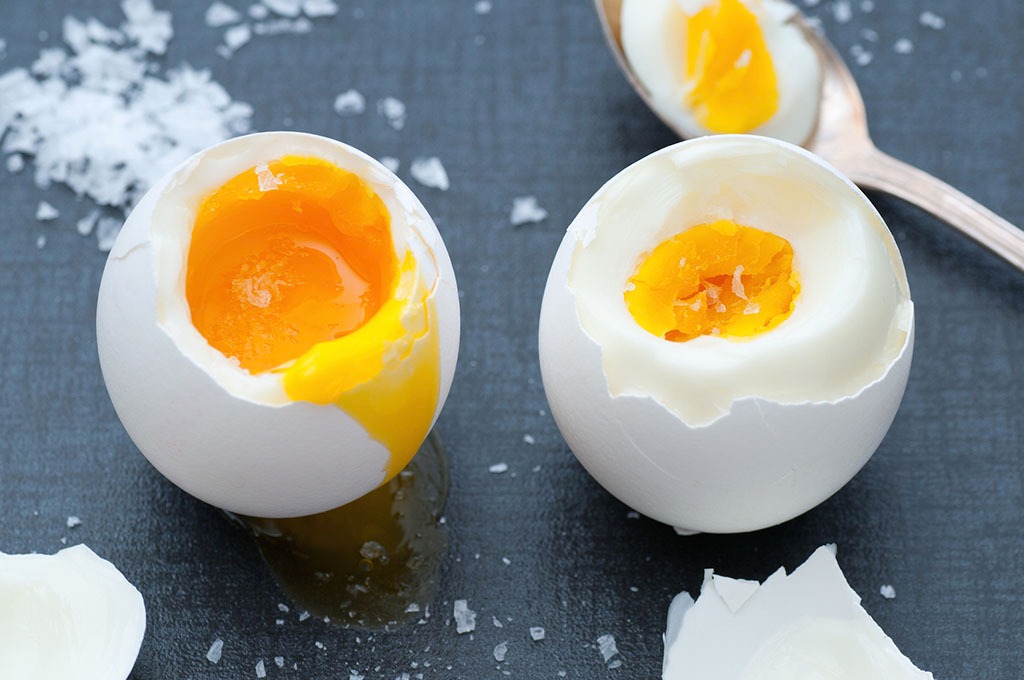
Egg yolks contain dietary cholesterol; this much is true. But research has proven that dietary cholesterol has almost nothing to do with serum cholesterol, the stuff in your blood. Wake Forest University researchers reviewed more than 30 egg studies and found no link between egg consumption and heart disease, and a study in Saint Louis found that eating eggs for breakfast could decrease your calorie intake for the remainder of the day. Bonus: Eggs are one of the 9 Foods That Shut Off Hunger Hormones—Fast!
